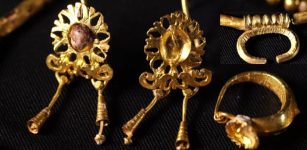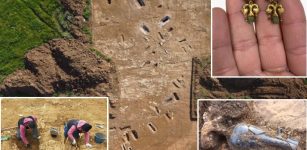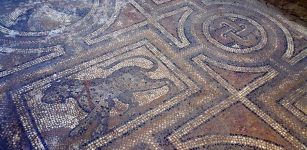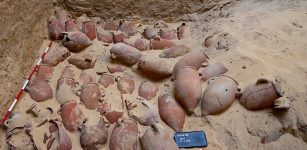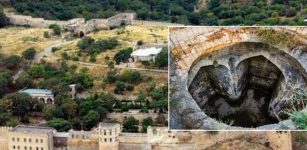Unique Glass Bead From The Time Of Jesus Discovered In Fire Pit In Sweden
AncientPages.com - Archaeologists call this unique glass bead, dated to the time of Jesus a sensational find. It is in many ways a remarkable and valuable artifact we still know little about.
Was this ancient artifact put in the grave as a special gift? Did this unique glass bead adorned with ornaments had a symbolic meaning?
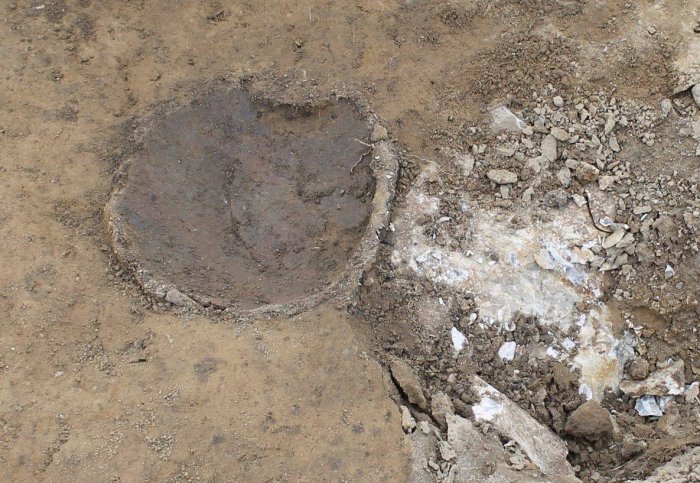
The 2,000-year old glass bead was found in a fire pit along with burned bones. Image credit: Österlens Arkeologi
Currently, we still have little information, but based on preliminary reports it seems that the pearl was deliberately placed in a fire pit long after the bones were burned. The glass bead was never damaged by the fire.
See also:
Scientists Confirm The World’s Only Twin Asteroid Strike In Sweden
Enigmatic Ale’s Stones – Sweden’s Megalithic Ship-Like Formation
While excavating in an area of Flintebrohemmet in Skurup, a town in southern Sweden, archaeologists made several surprising discoveries. They started with the assumption they could only find artifacts from around the late Iron Viking Age, about 1000-1200 years ago, but they were wrong.
Instead, they found ruins and artifacts that are at least 2,000-year-old, suggesting this place was once inhabited by people who performed special burial rituals.
During excavations, Swedish archaeologists found an urn vault and a so-called fire pit.
The ancient glass bead was found in the fire pit. According to Lars Jönsson from Österlen Arkeologi the urn vault is from the late Iron Viking Age, but the discovered objects are much older.
The glass bead will now be properly examined by specialists at Lunds University, but Jönsson says it was most likely created 300 to 400 years after the birth of Christ.
Jönsson also says the pearl was probably a burial gift. It was found inside the urn fire pit along with human bones. Someone was cremated, but whether it was a man, women or child, remains unknown for now.
Whether this area was once an ancient settlement it too early to say and Jönsson doesn’t want to speculate without having more evidence. The discovered artifacts show the site was used as a burial place where ceremonies were held.
AncientPages.com
Expand for referencesBased on information provided by Swedish media.


